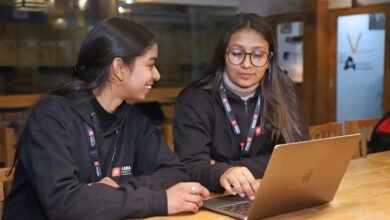The Art of Effective Job Interviewing: Impress and Land Your Dream Job

In today’s competitive job market, acing a job interview is crucial for securing your dream job. An effective job interview requires a combination of preparation, confidence, and the ability to showcase your skills and qualifications. In this article, we delve into the art of effective job interviewing & provide tips to help you impress your potential employers and land your dream job.
Read More: 7 Tips for Great Job Interviews
Understanding the Importance of Job Interviews
Job interviews serve as a crucial opportunity for employers to evaluate candidates’ qualifications, skills, and cultural fit. It is a chance for you to make a strong impression and showcase your expertise. A successful interview can lead to job offers and open doors to exciting career opportunities.
Preparing for the Interview
Before the interview, thorough preparation is essential. By investing time and effort into research and practice, you can enter the interview room with confidence and a clear understanding of the company and the role you are applying for.
Researching the Company
To impress your potential employers, research the company’s background, mission, values, products or services, and recent achievements. This knowledge demonstrates your genuine interest and allows you to align your answers with the company’s goals and values.
Analyzing the Job Description
Carefully review the job description to identify the key requirements and responsibilities. This analysis will help you tailor your responses to highlight your relevant skills and experiences, ensuring that you stand out as a suitable candidate.
Practicing Common Interview Questions
Prepare responses to common interview questions, such as “Tell me about yourself” and “Why are you interested in this position?” Practice articulating your answers with clarity and confidence. Consider recording yourself or conducting mock interviews with a friend to enhance your delivery.
Developing Strong Responses
Craft strong responses that highlight your accomplishments, skills, and problem-solving abilities. Use the STAR method (Situation, Task, Action, Result) to structure your answers and provide specific examples that showcase your capabilities.
Mastering Nonverbal Communication

Nonverbal communication plays a significant role in creating a positive impression during an interview. Pay attention to your body language, appearance, and overall demeanor.
Dressing Professionally
Dress appropriately for the job interview, adhering to the company’s dress code or opting for business professional attire. A polished appearance demonstrates your professionalism and respect for the opportunity.
Maintaining Eye Contact
Establish and maintain eye contact throughout the interview. It conveys confidence, engagement, and active listening. However, remember to strike a balance and avoid staring excessively, as it may be perceived as intimidating.
Displaying Positive Body Language
Demonstrate open and positive body language by sitting upright, leaning slightly forward, and using appropriate hand gestures. Smile genuinely, maintain a relaxed posture, and show enthusiasm through your gestures and facial expressions.
Demonstrating Confidence and Enthusiasm
Confidence and enthusiasm are highly valued traits in candidates. By projecting these qualities during the interview, you can leave a lasting impression on your potential employers.
Cultivating a Positive Mindset
Adopt a positive mindset before the interview. Visualize success, remind yourself of your qualifications, and focus on the value you can bring to the company. This mental preparation will boost your confidence and help alleviate nervousness.
Showcasing Your Accomplishments
Confidently share your achievements and success stories related to the job requirements. Provide specific examples that demonstrate your skills and how you have made a positive impact in previous roles. Quantify your achievements whenever possible to add credibility to your claims.
Asking Thoughtful Questions
Prepare a list of thoughtful questions to ask the interviewer. This demonstrates your genuine interest in the position and allows you to gather valuable insights about the company’s culture, future goals, and expectations. Engage in a conversation rather than solely answering questions.
Crafting Impactful Responses
During the interview, your responses should be concise, relevant, and tailored to the job requirements. Craft impactful answers that leave a lasting impression on the interviewer.
Using the STAR Method
When responding to behavioural or situational questions, use the STAR method. Describe the Situation, Task, Action, and Result of the specific scenario, emphasizing your role and the positive outcomes you achieved. This structured approach provides clarity and demonstrates your ability to handle challenges effectively.
Tailoring Your Responses to the Job Requirements
Carefully listen to the interviewer’s questions and tailor your responses to address the specific job requirements. Highlight relevant experiences, skills, and accomplishments that align with what the company is seeking in an ideal candidate.
Providing Examples and Specifics
Support your responses with concrete examples and specific details. This adds credibility to your answers and allows the interviewer to gain a deeper understanding of your capabilities and accomplishments.
Handling Difficult Questions
Difficult questions or situations can arise during an interview. It is important to remain composed and tackle these challenges with grace and confidence.
Addressing Weaknesses and Challenges
When discussing weaknesses or challenges, focus on how you have overcome them or turned them into opportunities for growth. Emphasize the steps you have taken to improve and highlight your willingness to learn from your mistakes.
Turning Negatives into Positives
If faced with negative situations, such as employment gaps or job transitions, reframe them as positive learning experiences. Explain how these experiences have shaped your skills, resilience, and adaptability, positioning them as valuable assets.
Demonstrating Adaptability and Problem-Solving Skills
Highlight your ability to adapt to new situations and solve problems effectively. Share instances where you successfully handled unexpected challenges and utilized your problem-solving skills to achieve positive outcomes.
Closing the Interview on a High Note
As the interview comes to a close, leave a positive and lasting impression by following these key steps.
Expressing Gratitude
Thank the interviewer for their time, the opportunity to interview, and the insights they have shared. Express sincere appreciation for considering you as a candidate.
Reiterating Your Interest in the Position
Confidently express your continued interest in the position. Highlight the aspects of the role and the company that aligns with your career goals and aspirations.
Asking About the Next Steps
Inquire about the next steps in the hiring process, such as timelines for decision-making or potential follow-up interviews. This demonstrates your eagerness to move forward and allows you to gain clarity on the next stages.
Read More: The Benefits of Volunteer Work for Career Development
Conclusion
Mastering the art of effective job interviewing requires careful preparation, confidence, and the ability to effectively communicate your qualifications and skills. By following the tips and strategies outlined in this article, you can impress your potential employers and increase your chances of landing your dream job.
FAQs
How early should I arrive for a job interview?
It is recommended to arrive 10-15 minutes early to allow time for check-in and to gather your thoughts before the interview.
What should I bring to a job interview?
Bring extra copies of your resume, a list of references, a notepad, and a pen. Additionally, you can bring any relevant supporting documents, such as certifications or portfolio samples.
How can I calm my nerves before an interview?
Practice deep breathing exercises, visualize success, and engage in positive self-talk. Additionally, thorough preparation and mock interviews can help boost your confidence.
Is it important to send a thank-you note after an interview?
Sending a personalized thank-you note or email after an interview is a thoughtful gesture that can leave a positive impression on the interviewer. It shows your appreciation and reiterates your interest in the position.
How do I handle a panel interview?
In a panel interview, address each interviewer individually while maintaining eye contact with all panel members. Direct your responses to the person who asked the question, but engage with the entire panel to demonstrate inclusivity and adaptability.







